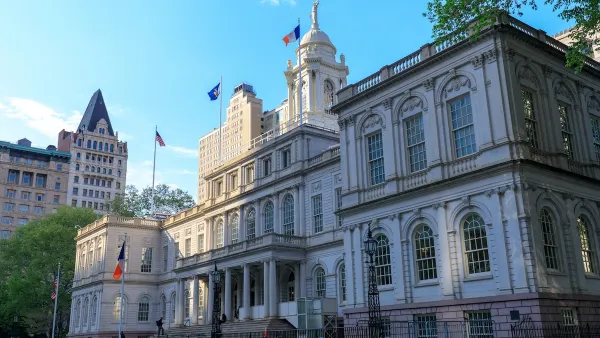If buildings are responsible for almost half of the energy consumption and greenhouse gas emissions in the United States, then our energy and building codes are incredibly important tools attaining energy and climate sanity.
Ed Mazria of Architecture 2030 writes, "Buildings are responsible for approximately 48 percent of all energy consumption and GHG emissions in the U.S. Forty-eight percent. Let that sink in. The entire transportation sector is only responsible for 27 percent. To win the climate change battle, we must tackle the building sector."
"Local governments are doing just that. They are among the real heroes of the climate change crisis. Shortly after Architecture 2030 issued the 2030 Challenge, the U.S. Conference of Mayors unanimously adopted Resolution 50, the challenge for all buildings in all cities. Since making that commitment, cities and counties across the U.S. have been working to implement its targets, particularly through building energy codes."
"As the gatekeepers of building energy codes, local governments are in a uniquely powerful position to save the world by effecting change within the very sector that needs the greatest changes. They don't need to wait for anyone else to come to their rescue; they are the knights in shining armor. Who knew?"
Architecture 2030's 2030 Challenge calls for aggressively improving the required energy efficiency of new buildings over time.
FULL STORY: Your city council could save the world

Maui's Vacation Rental Debate Turns Ugly
Verbal attacks, misinformation campaigns and fistfights plague a high-stakes debate to convert thousands of vacation rentals into long-term housing.

Planetizen Federal Action Tracker
A weekly monitor of how Trump’s orders and actions are impacting planners and planning in America.

In Urban Planning, AI Prompting Could be the New Design Thinking
Creativity has long been key to great urban design. What if we see AI as our new creative partner?

King County Supportive Housing Program Offers Hope for Unhoused Residents
The county is taking a ‘Housing First’ approach that prioritizes getting people into housing, then offering wraparound supportive services.

Researchers Use AI to Get Clearer Picture of US Housing
Analysts are using artificial intelligence to supercharge their research by allowing them to comb through data faster. Though these AI tools can be error prone, they save time and housing researchers are optimistic about the future.

Making Shared Micromobility More Inclusive
Cities and shared mobility system operators can do more to include people with disabilities in planning and operations, per a new report.
Urban Design for Planners 1: Software Tools
This six-course series explores essential urban design concepts using open source software and equips planners with the tools they need to participate fully in the urban design process.
Planning for Universal Design
Learn the tools for implementing Universal Design in planning regulations.
planning NEXT
Appalachian Highlands Housing Partners
Mpact (founded as Rail~Volution)
City of Camden Redevelopment Agency
City of Astoria
City of Portland
City of Laramie




























